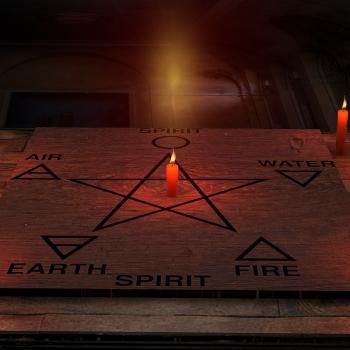On a recent journey through highways and byways (and the occasional bucolic country lane) of the Internet, I went in search of an understanding of “dignity.” It’s a word associated with refinement, nobility, and power. It’s also something that is sorely lacking in this day and age.
As I searched for a “Dignity for Dummies” guide, it quickly became apparent that no such thing existed on the Internet. Instead of “how to be dignified” or even “how to act dignified” everything I ran into seemed to be about treating the sick and dying with dignity.(1) There wasn’t much beyond that.

Over and over, I ran into the phrase “dignity and respect.” As in, “we should treat others with dignity and respect.” The phrase itself made me pause and wonder what the difference between the two is.
The Quest for Dignity and Respect
So I was worse off than when I started. Not only could I not really put a finger on the meaning of dignity, I couldn’t even distinguish between dignity and respect. Honestly, at first I thought the two were the same thing. It makes sense, right? We treat people with “dignity and respect.”
But at the same time, we can also act “with dignity,” and that means somehow noble and refined and self-sacrificing. So there had to be more.
Research ensued. Thoughts were thunk. Past-participles were plundered. Sources were plumbed and plumbers were sourced. Okay, not really, but you get the idea. I pondered and pondered until suddenly, something that should have been obvious bit me in the derriere.
I have to admit, sometimes my understandings of words aren’t in words, like dictionary definitions. Instead, I see little movies in my head. The image I have for “dignity” is a deposed queen walking calmly to her execution. Grim? Sure. But it gets the point across. Dignity has something to do with self-restraint. Dignity is about self-possession.
What I unearthed in my research was that pretty much no one else knows what dignity is anymore, either. Most people around us don’t know the difference. The West, and especially America, have lost any sense of dignity. We don’t know what it is, what it means, where to find it, or why we would even want it.

Two Sides, One Coin
Dignity and respect. Respect and dignity. Turning them over and over in my head, I came to see that they were two sides of the same coin. No, they are not the same thing, but they both exist in service of the same ideal: harmonious relations.
The difference between dignity and respect is striking and important. Dignity and respect go (or should go) hand in hand, working in balance to harmonize our relationships.
The West, especially America, has thrown dignity to the wind as a unnecessary. We tossed it aside in pursuit of respect, but in the end we can’t have one without the other.
What we didn’t know, perhaps couldn’t have known, was that when we threw out dignity, we destabilized all of our relationships, from the everyday to the sacred. By not recognizing the social obligations of power, we threw our world into disarray.
Respect and Dignity
Respect is how we treat people because they have power. Oh, we can go on about character (another word pretty much no one understands these days), and people earning our respect by treating us with respect. But none of that gets us away from the basic nature of respect: respect is contextual. Respect is earned.
When we talk about someone having to earn our respect, it is usually about them performing actions that establish their power – power in the sense of being able to control themselves and act in appropriate ways. They earn respect with the ability to get things done.
The corollary of respect is dignity. Dignity is how we treat others when we have power, if we want to maintain harmonious social relationships. Dignity is the restraint we show on the use of power so that its use doesn’t destabilize society.
“Treating people with dignity” doesn’t mean treating them like they have dignity. It means treating them in a manner that shows that I have dignity. It means understanding our own power in a situation, and not being a jerk about it. These days, the kids use a catchphrase for it – “check your privilege” – a phrase amazingly close in meaning to “have a little dignity” or “show some restraint.”

Dignity during Disruption
When we can finally see that dignity comes from self-knowledge and restraint, a lot of things come clear. These days, we’re not not sure of our own safety and position; it’s a perfect recipe for not treating others with dignity. And there’s nothing like a massive technological (and concomitant social) revolution to make everyone and their mother feel like their social position is under constant challenge.
Treating people with respect is about recognizing their power and treating them in such a way that the relationship stays harmonious. Treating people with dignity is about recognizing our own power, and treating others in such a way that the relationship stays harmonious.
ProTip: In order to be treated with respect, we need to cultivate dignity. If we have power and no one thinks we have the wisdom to use it, they will constantly act to take it away. The solution to this, however, is not to cling more tightly to power.
Admittedly, to get respect we need to cultivate power. To maintain respect, rather than frittering it away against a million challengers, we need to show restraint in using it.
What does that mean, in practice? It means not taking the bait when we’re offered easy chances to put someone down. Fighting in your own weight class. When offered respect, be gracious about it.
Without harmony in our lives and our relationships, there will never be enough clarity to make real progress on anything important. Unless those in power who demand respect also behave with requisite self-restraint, their ascent will only breed disharmony and destruction.
By the same token, if we want to have more than naked power, and earn the respect of others, we must cultivate not only power but also dignity. This pattern is as true for magicians and pagans as it is for politicians and corporations. We can do no more than live this ourselves and demand it of those who would seek to rule us.
—
(1) I just wanted to add a footnote on this topic, dignity and dying. Speaking from experience, those who know that death is coming are often overwhelmed with a sense of powerlessness. It seems only polite not to shove this in their face by exerting unnecessary power over them. Treating the dying with dignity means showing restraint as they face the inevitable and recognizing that our needs are secondary.
















